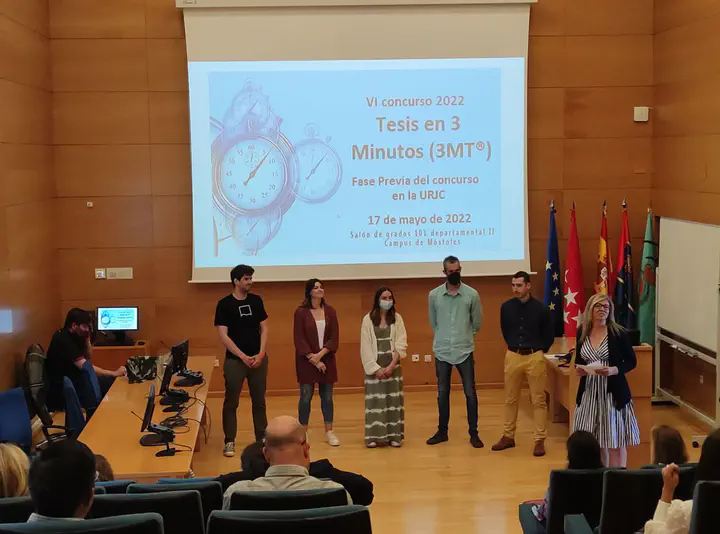Sergio Cavero winner of the preliminary phase URJC - Thesis in 3 Minutes.

Sergio Cavero will represent the URJC in the area of knowledge of Engineering and Architecture against other universities of the community of Madrid in the final phase.
More than a decade ago, the contest “Thesis in 3 Minutes” was born at the University of Queensland (Australia).
The objective of this contest still maintains its essence, to make science more impactful by making it accessible to society.
Sergio Cavero will be the author who will represent the Universidad Rey Juan Carlos in the final phase of the “Thesis in 3 minutes”, in the area of knowledge of Engineering and Architecture.
For the presentation of the theses, participants have 180 seconds in which they must address the research topic, its objectives, the problems identified, the contribution of the research and the impact their work will have. In addition to their ability to communicate, students may use a still image to support their presentation.
The finalists will compete in a joint final where each finalist will receive a prize of 500 €, one for each winner in each branch of knowledge. Prizes of 100 € will also be awarded to the rest of the contestants who have been finalists in the previous phase of each branch of knowledge.
The final phase will be held on June 10 at the University of Alcalá de Henares, will be open and public, where the order of presentation of the candidates is determined by a draw made before the start of the session.
We wish the best of luck.